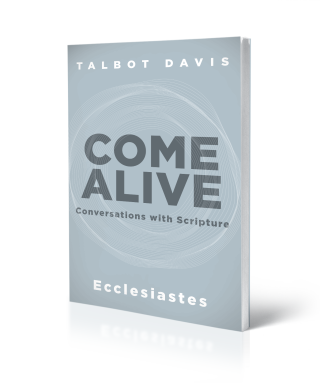5 Things I’ve Learned About The Bible SINCE Seminary
Lord knows I loved my time at Asbury Theological Seminary in Wilmore, Kentucky.
I made great friends, was surrounded by phenomenal professors, and learned a method of bible study that finds its way into virtually every sermon I preach. In fact, each of the sermons-turned-chapters in Head Scratchers, Crash Test Dummies, The Storm Before The Calm, and, of course, the Come Alive Series began with the inductive, observational approach I learned at Asbury.
Yet in the thirty-three years since graduation, I’ve entered an entirely new world of biblical learning. It’s possible that while in Wilmore I either a) wasn’t listening or b) didn’t take just the right classes to hear this material, but the fact remains that my understanding of the biblical library has changed significantly in the quarter century after graduation.
So, here goes: the FIVE things I’ve learned about the bible AFTER seminary.
1. The bible is full of books written for people who were by and large illiterate.
Think about that for a moment: our faith is founded on books written for people who for the most part could not read them. They heard them. However Moses, David, Matthew, and Paul and the rest envisioned their works being used, they did NOT foresee them read silently by an individual under a reading light taking notes in his leather bound edition. The printing press was still 1400+ years after the final book in the New Testament was completed! Romans 10:17 says “faith comes by” and most modern American evangelicals would complete that sentence with reading since that’s how we grow. Yet Paul finishes it with “hearing.” The books of the bible are written for the ear and not for the eye.
2. Genesis 1 in particular is meant to be read out loud and in community.
Try it. You’ll notice very quickly that it has verses and choruses and a bridge and then a resounding climax: “it was very good.” We mistreat Genesis 1 when we pick it apart for science when it is designed to be celebrated as a hymn.
3. Because it is a library, it has multiple voices.
Now, there is a grand unifying theme throughout the library — God’s relentless pursuit of reluctant humanity, a story that winds its way from Israel through Jesus. But within that larger narrative, different voices are not only tolerated, they’re celebrated. Don’t believe me? Read Proverbs. Live well and you will prosper. It is the classic book of crisis prevention. And then read Ecclesiastes. Live well and you’ll still be miserable and then die. It’s the classic book of crisis inevitability. And yet both bear the heavy imprint of the same author — King Solomon. I happen to believe that he wrote Ecclesiastes while in a depressive state . . . which makes me so glad the church included it in the canon.
4. The bible’s humanity does not diminish its authority; it increases it.
Whether it’s the imprecatory Psalms, Paul’s pleas for Corinthian respect, or Mark’s matchless way of highlighting the disciple’s flaws, the human element in the Scripture makes it more inspired, not less. God takes tortured geniuses and turns them into theological artists. My moments of greatest exegetical joy come when I can share the literary brilliance of the biblical authors with the people of Good Shepherd.
5. The bible’s books HAD A LIFE before they were collected into the bible.
Genesis 1 was no doubt chanted around Hebrew campfires. The Songs Of Ascent (Psalm 120-134) were sung as pilgrims marched “on the up and up” to the Jerusalem temple. The letters of Paul were read aloud to the gathered churches of Colossae, Philippi, and, of course Rome. The reason most of the books in the bible made the canonical cut is that they were already in use and bringing spiritual nourishment to the people of God.
I suppose the reason I’ve learned so much in the thirty-three years after graduation is that Asbury Seminary prepared my mind and my spirit to keep thinking and keep growing while in the midst of serving and leading.
My newest Come Alive book is now available for pre-order. Come Alive: Ecclesiastes is full of fascinating insights about the Bible like the five above. Order yours now!


